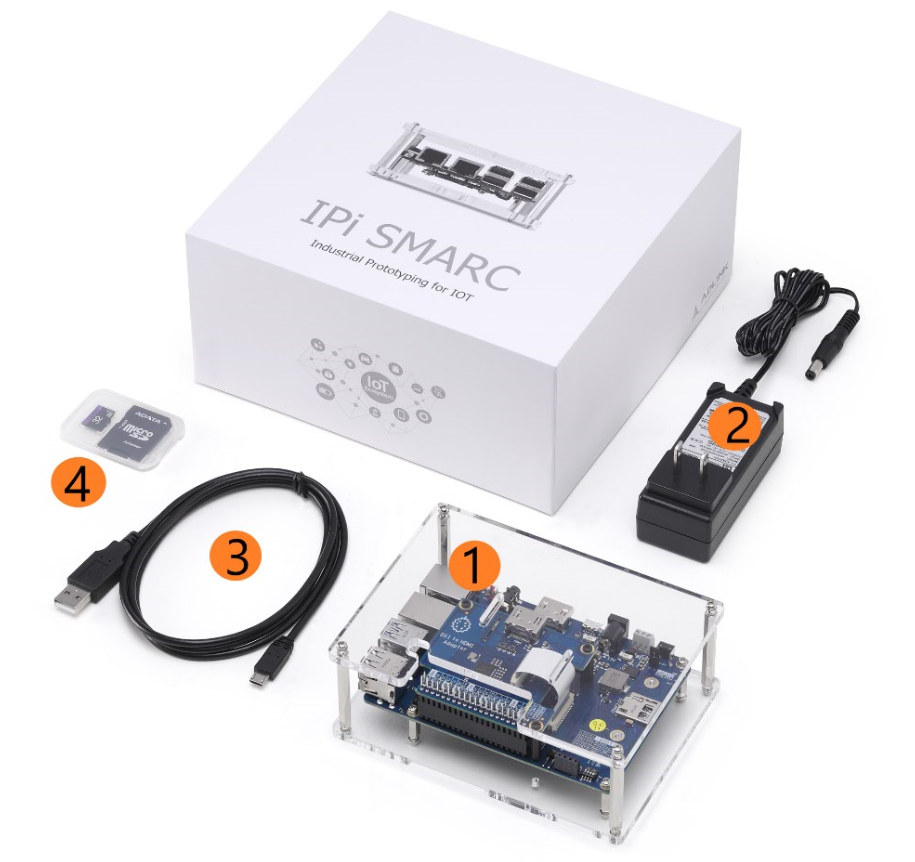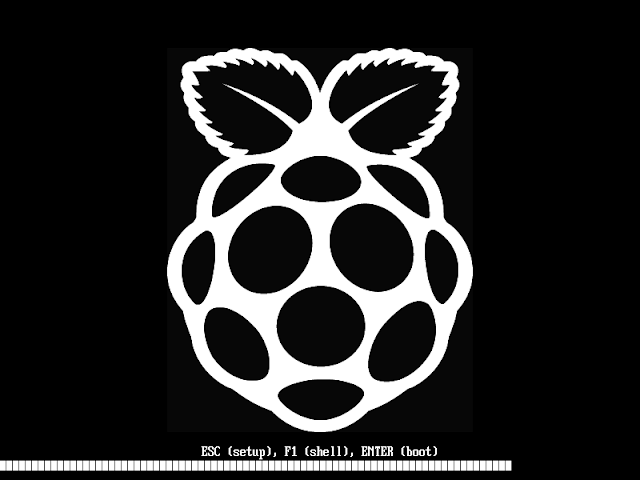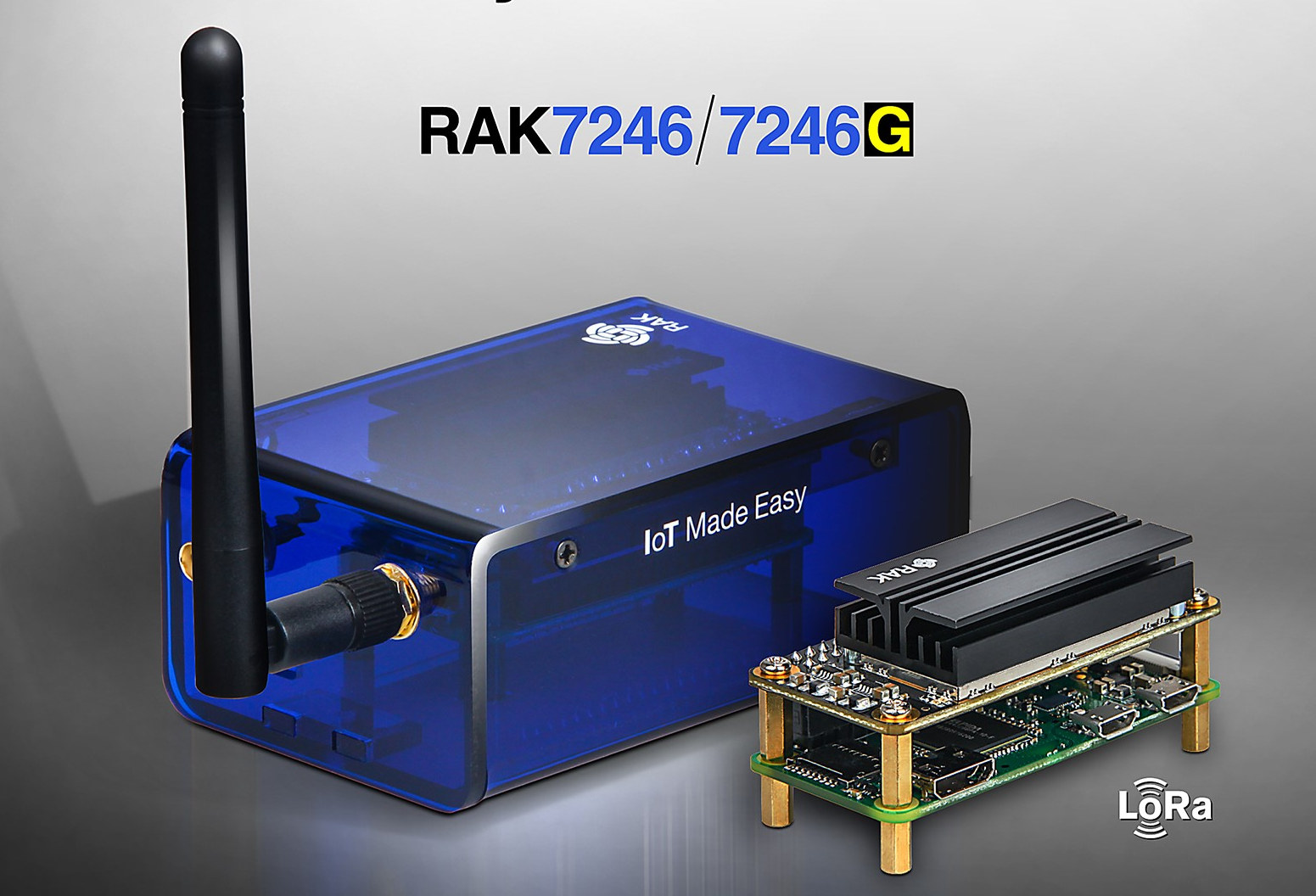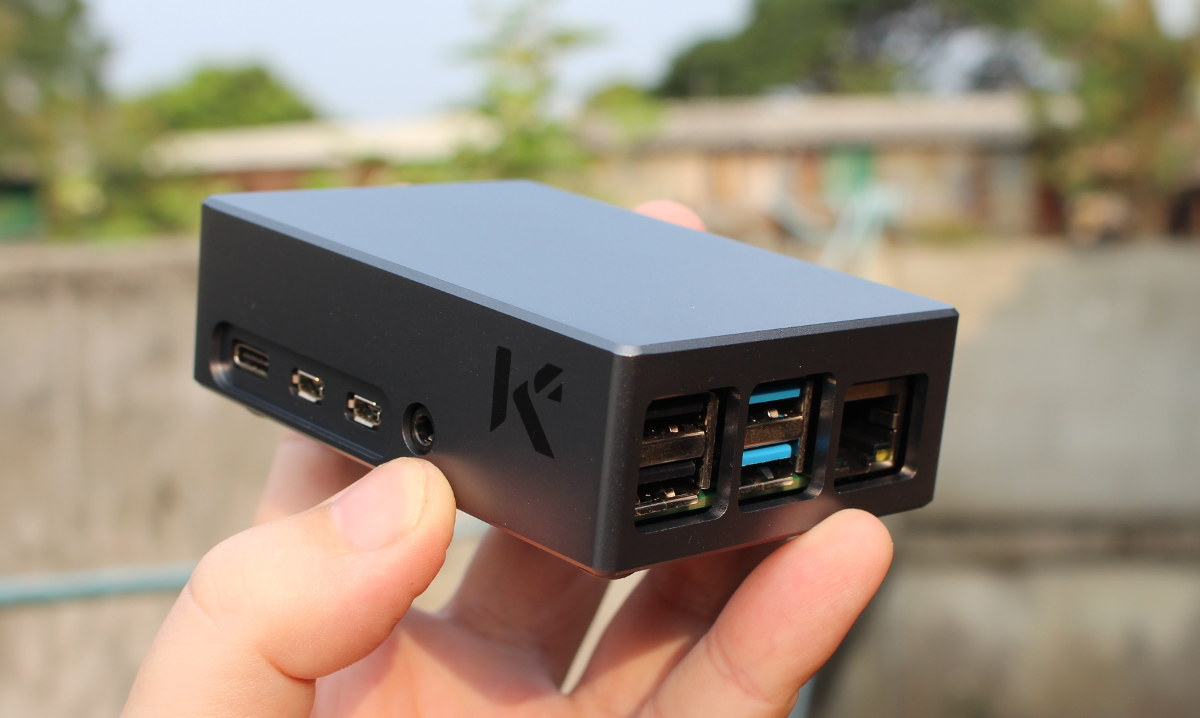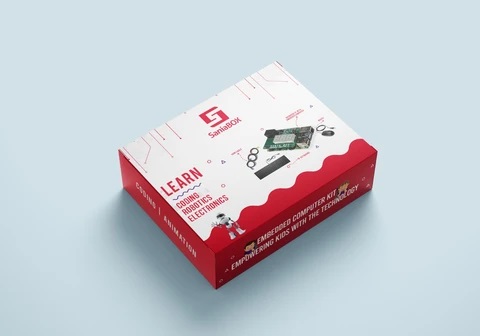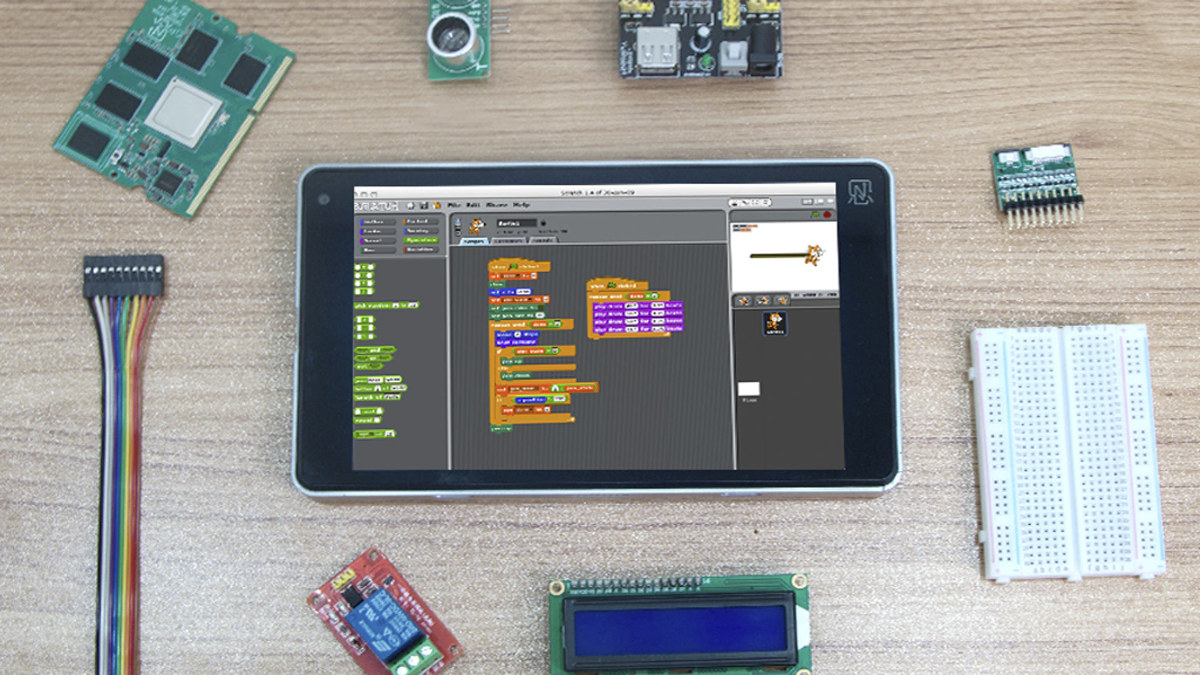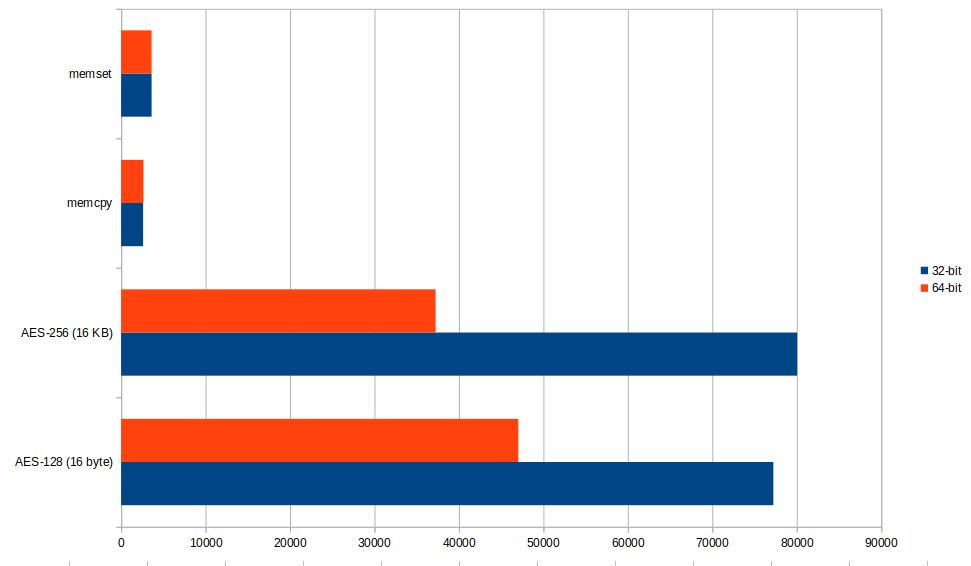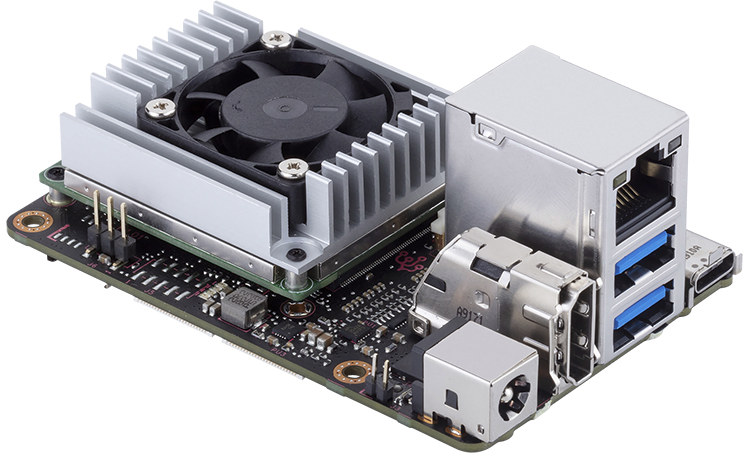ADLINK Technology has just announced the Industrial-Pi (I-Pi) SMARC Development Kit to help engineers quickly design prototypes for industrial applications using peripherals and sensors. The I-Pi SMARC development kit is comprised of a baseboard, LEC-PX30 SMARC-compliant Rockchip PX30 system-on-module, an acrylic case, a 12V/2A power supply, USB cable, and a 32GB MicroSD card. The company promotes the kit as “an industrial-ready substitute for Arduino and Raspberry Pi (RPi) platforms that are commonly used for prototyping but cannot typically be ‘dropped’ into an industrial solution as-is“. LEC-PX30 SMARC System-on-Module Specifications: SoC – Rockchip PX30 Quad-core Arm Cortex-A35 CPU with TrustZone technology, ARMv8 Cryptography Extensions, Mali-G31 GPU System Memory – 1GB or 2GB DDR3L at 1066/1333 MHz Storage – 8, 16, 32 or 64 GB eMMC flash Connectivity – 10/100M Ethernet from SoC, 10/100M Ethernet via LAN9514 USB 2.0 Ethernet controller Video Decoding – H.264 up to 1080p60, H.265/HEVC up to 1080p60, […]
Raspberry Pi 4 UEFI+ACPI Firmware Aims to Make the Board SBBR-Compliant
As Arm wanted to enter the server market, they realized they had to provide systems that could boot standard operating system images without modifications or hacks – just as they do on x86 server -, so in 2014 the company introduced the Server Base System Architecture Specification (SBSA) so that all a single OS image can run on all ARMv8-A servers. Later on, Arm published the Server Base Boot Requirement (SBBR) specifications describing standard firmware interfaces for the servers, covering UEFI, ACPI and SMBIOS industry standards, and in 2018 introduced the Arm ServerReady compliance program for Arm servers. While those are specific to Arm server, some people are pushing to implement SBBR compliant for Arm PCs, and there’s one project aiming to build an SBBR-compliant (UEFI+ACPI) AArch64 firmware for the Raspberry Pi 4. The UEFI firmware is a build of a port of 64-bit Tiano Core UEFI firmware, and version […]
$99 RAK7246 LoRaWAN Developer Gateway Features Raspberry Pi Zero W SBC
Outdoor LoRaWAN gateways meant to be deployed in the field usually cost several hundred dollars, so companies also offer cheaper gateways for indoor use that can be used by developers. RAKWireless offers this type of gateway with products such as Pilot Gateway Pro RAK7243 based on Raspberry Pi 3 Model B+ board, or RAK7244 LoRaWAN Developer Gateway featuring the more recent Raspberry Pi 4 board and sold for $212 and up with price depending on options such as cellular connectivity. The company has now worked on providing much cheaper indoor/developer gateways with their RAK7246 and RAK7246G LoRAWAN developer gateways with the latter adding GPS. RAK7246 is available. RAK7246 key features and specifications: SBC – Raspberry Pi Zero W board with Broadcom BCM2835 ARM11 processor @ 1GHz, 512MB RAM Storage – 16GB MicroSD card Connectivity 802.11 b/g/n WiFi and Bluetooth 4.0 via Cypress CYW43438 module found on RPi Zero W board […]
KKSB Raspberry Pi 4 Aluminum Case Review – Benchmarks at Stock Clock and Overclocked to 2.0 GHz
KKSB is a Swedish company designing and manufacturing metallic products for various open-hardware products such as single board computers including Raspberry Pi, Arduino, ODROID, Orange Pi and others, as well as mobile phone and tablet stands, and they also have a mini-ITX case planned for March. The company approached CNX Software to review their latest Raspberry Pi 4 case, and I was interested to find out how it would handle cooling. KKSB Raspberry Pi 4 Case Aluminum Unboxing So I recently received the enclosure in a mostly white package. The case comes in two parts as well as a thermal pad for the processor, mounting screws, rubber pads, and two plastic bits for the LED. Aluminum Case Assembly First, peel over the plastic film on one side of the thermal pad, and place it on the extrusion for the processor on the top part of the enclosure. Remove the second […]
Sania Box Raspberry Pi 4 based DIY Kit is Designed for STEM Education (Crowdfunding)
Sania Box, A Special Kind of DIY RPi4 Based Kit The 13-year-old Sania Jain is a young entrepreneur, published writer and tech aficionado who now offers an embedded computer kit called Sania Box. The Raspberry Pi 4 based embedded system kit comes with an add-on board and has been designed to develop coding skills in anyone 8 years old or more, and for learning IoT, STEM, and for all kinds of DIY fun. Background Some DIY RPi-based kits can be found in our archives, such as the Piper Computer Kit 2 made for children’s education, but there’s now another option thanks to Sania Jain who has been designing, building, and writing in the STEM arena for some time. Sania Jain’s accomplishments are amazing, and look to be just her beginning in STEM-based endeavors. A Concept With Wide Reach The Sania Box was conceived by Sania Jain and built by Moonshot […]
Ntablet Android & Linux Tablet Features a Replaceable RK3288 CPU Module, GPIO Board
Most tablets on the market either run Android or Windows, and while some have tried to launch Linux tablets, none of the products have really caught on, although the upcoming PINETAB might change that. Another option might be Ntablet 7″ tablet that runs either Android, Debian or WebOS Linux operating systems, but also offers some innovative features such as a replaceable Rockchip RK3288 CPU module, and an external GPIO board for makers. Ntablet hardware specifications: SoC – Rockchip RK3288 quad-core Cortex-A17 processor @ 1.8 GHz with Mali-T760 quad-core GPU System Memory – 2GB LPDDR3 Storage – 16GB eMMC flash, MicroSD card slot up to 32GB Display – 7″ touchscreen IPS display with 1920×1200 resolution Video Output – Micro HDMI port Audio – 3.5mm headphone jack Camera – 5MP front-facing camera (OV5648 sensor) Connectivity – 802.11b/g/n/ac WiFi 5 and Bluetooth 4.0 via Ampak AP6255 module USB – 1x USB 2.0 port, […]
Raspberry Pi 4 Benchmarked with 32-bit and 64-bit Debian OS
The first Raspberry Pi board with a 64-bit Arm processor was Raspberry Pi 3 Model B, and all new models including the latest Raspberry Pi 4 come with four Arm Cortex-A 64-bit cores. But in order to keep backward software compatibility with the original Raspberry Pi and Raspberry Pi 2, the Raspberry Pi foundation decided to keep provided 32-bit OS image, so nearly everybody is now running a 32-bit OS on 64-bit hardware, and Eben Upton famously claimed it did not matter. We already wrote that 64-bit Arm (Aarch64) boosted performance by 15 to 30% against 32-bit Arm (Aarch32) several years ago, but Matteo Croce decided to try it out himself on Raspberry Pi 4 board first running benchmarks on Raspbian 32-bit before switching to a lightweight version of Debian compiled as aarch64. Dhrystones is much faster with the 64-bit OS, namely 50% faster, but as a synthetic benchmark, its […]
ASUS Tinker Edge T SBC Launched for $168 and Up
ASUS unveiled Tinker Edge T & CR1S-CM-A SBCs based on Google Coral Edge TPU system-on-module featuring both NXP i.MX 8M processor and Google Edge TPU co-processor for AI acceleration in May 2019, but at the time none of the boards were available. But earlier this month, ASUS officially announced the board, and it can now be purchased on various sites including Provantage (~$168.35) and Physical Computing (21,600 JPY ~ $200). It is also listed on Connection for about $198 but currently out of stock. Edge TPU module SoC – NXP i.MX 8M quad-core Arm Cortex-A53 processor with Arm Cortex-M4F real-time core, GC7000 Lite 3D GPU ML accelerator – Google Edge TPU coprocessor delivering up to 4 TOPS System Memory – 1 GB LPDDR4 RAM Storage – 8 GB eMMC Flash memory Wireless Connectivity – Wi-Fi 2×2 MIMO (802.11b/g/n/ac 2.4/5GHz) Bluetooth 4.2 Baseboard Storage – MicroSD card slot Networking – Gigabit […]


